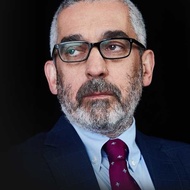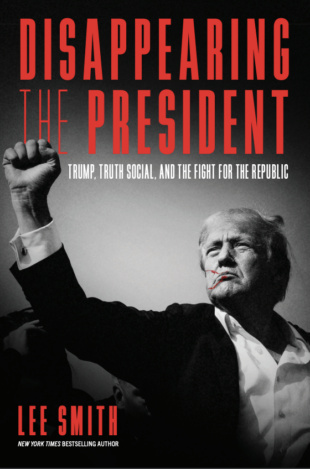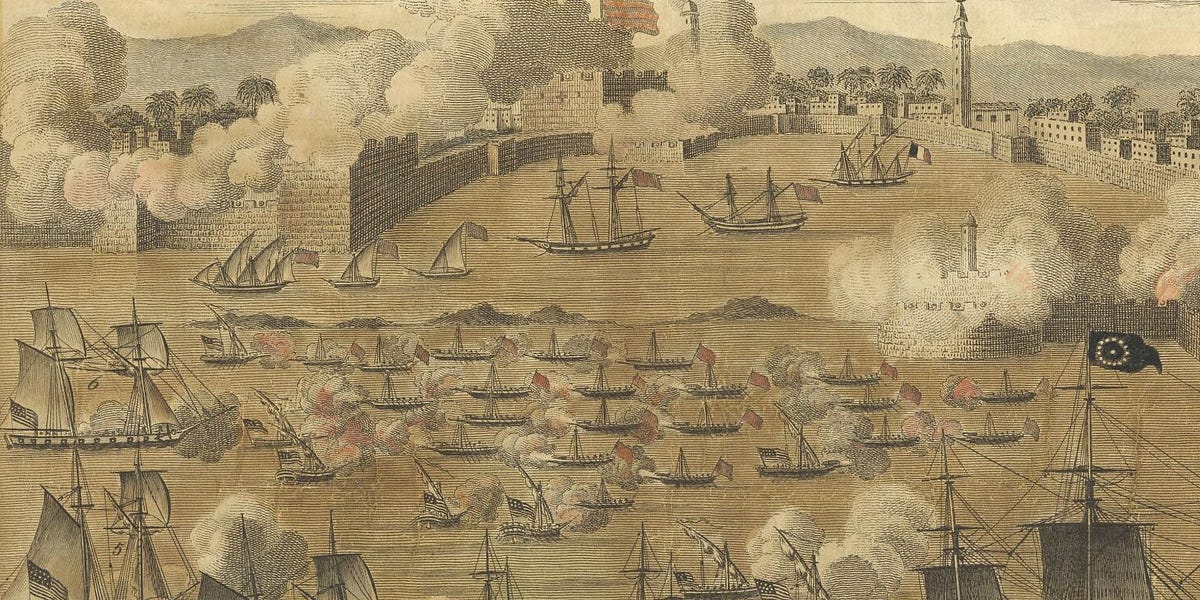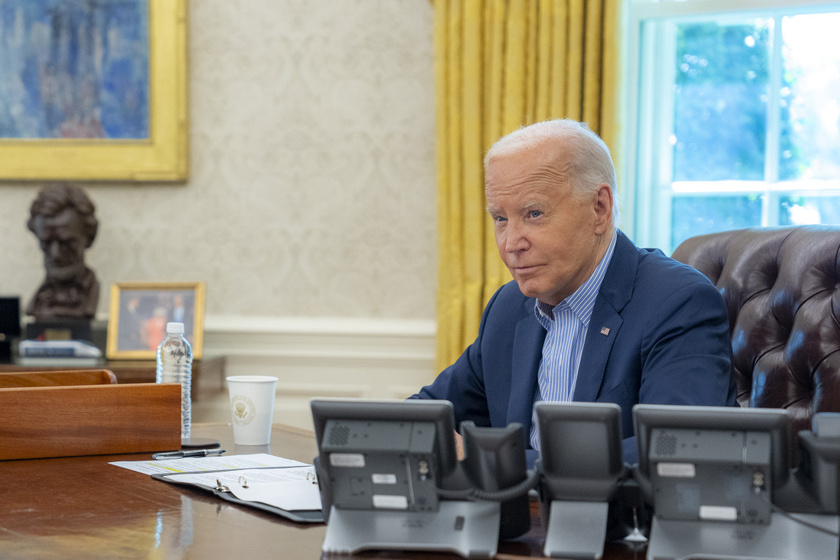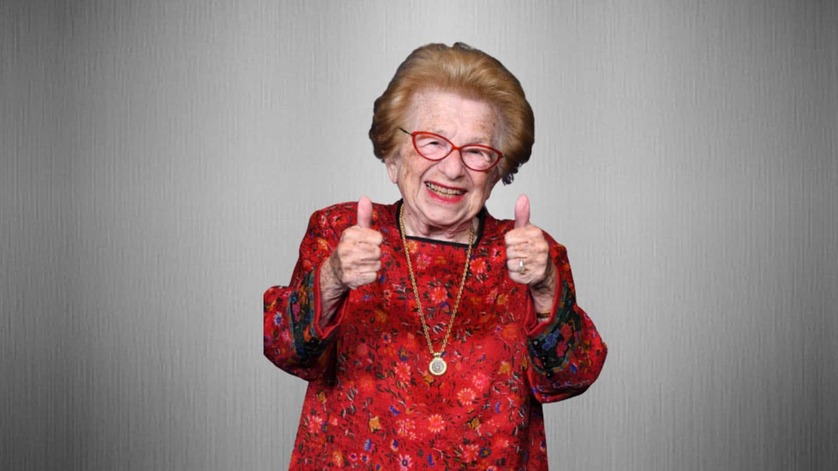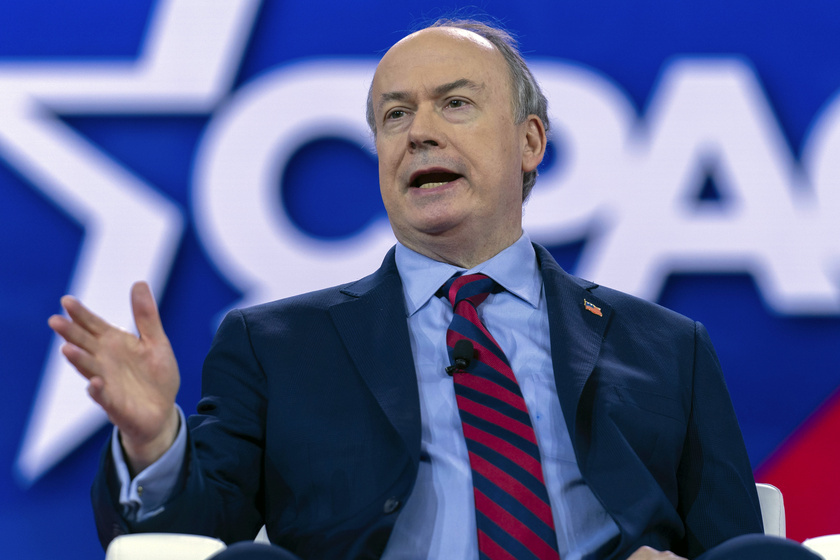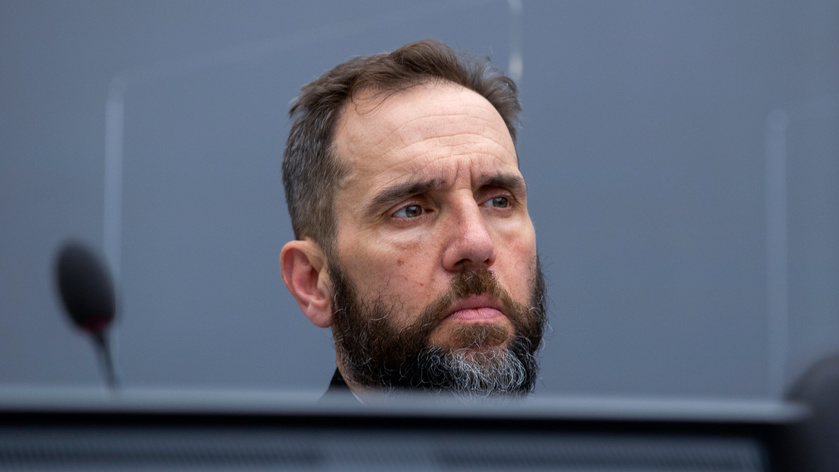
Richard Grenell was one of the Donald Trump administration’s brightest stars. The former spokesman to the UN in the George W. Bush administration, Grenell was named ambassador to Germany in 2018, and in 2020 became acting director of National Intelligence where he declassified information that helped expose the Department of Justice’s anti-Trump plot. Lesser known is the role that Grenell played mediating between once warring sides in the Balkans as special presidential envoy for Serbia and Kosovo peace negotiations. And it was in that post where Grenell first came across Jack Smith.
At the time, the special counsel named to investigate the leading candidate for the 2024 Republican nomination was chief prosecutor for the Kosovo Specialist Chambers at the Hague, Netherlands. The international court is charged with investigating crimes committed during the wars that set the former Yugoslavia ablaze during the 1990s. In 2020, as the Trump White House was on the verge of brokering historic agreements between Serbia and Kosovo, Smith arrested the sitting Kosovar president, Hashim Thaci. And now some European leaders are up in arms about the allegedly phony charges against the man Joe Biden once called “the George Washington on Kosovo.”
As Grenell explains, it's a complicated story, but absolutely essential background for understanding the character and the methods of the man the DOJ has designated to lead the 2024 leg of its ongoing campaign to Get Trump. Here’s an edited transcript of my interview with Ambassador Grenell for my Epoch TV show Over the Target.
RG: A lot of Western media outlets are starting to pay attention to this story because the prime minister of Albania was speaking before the Council of Europe and chastising it for allowing the president of Kosovo to remain in jail on trumped-up charges. He's in the Hague. And the president of Kosovo, Hashim Thaci, has been there for years and the charges are weak and the prosecutor who put him there is Jack Smith.
This is a very dense case. It's not super sexy, it's not going to be able to be told in 30 seconds. You're not going to understand it in one minute. But there's a long history of what's been happening. And I've been involved in it for a very long time.
President Trump appointed me Presidential Envoy for Kosovo-Serbia Negotiations. I started these negotiations to try to get the two sides to get some sort of economic agreement instead of talking about past problems. We were looking to the future trying to peel the Serbs away from the Russians and the Chinese and have a better relationship with the United States, and at the same time moving Kosovo forward. I was negotiating between Serbian President Aleksandar Vucic and the Kosovo president at the time, Hashim Thaci.
LS: This was an underrecognized Trump administration achievement. And as the envoy, you deserve special credit for bringing together the Serbians and the Kosovars.
RG: I have been critiqued and complimented by both sides. In fact, I think I'm the only person in the world to have received the highest medal of honor from both Kosovo and Serbia.
This is a long, complicated history in the Balkans, the war, the bombing that started in 1989. And there are lots of different views. There's lots of war crimes that people were accused of, and there were lots of investigations of those war crimes. I spent eight years at the UN and the UN launched investigations of what had happened. Lots of charges of war crimes on both sides. And this international court was established to work through the details. We spent decades, millions of US taxpayer dollars on prosecutors looking at details, interviewing witnesses, and when the prosecutor at the Hague before Jack Smith resigned he said, I've investigated for years, I've spent millions of dollars and there's nothing here. No one will be indicted.
That's a really important point — the prosecutor before Jack Smith had been there for a long time had looked at everything and said there's nothing to do now. Think about this: an international court investigating for 15 or 20 years and not being able to produce any type of indictment is a serious situation. When I was doing the economic negotiations between Serbia and Kosovo, I was throwing a lot of things out on the table, to try to get both sides to think differently. What President Trump charged me with was looking at the economics of it: how do you bring jobs to the region, not political dialogue of the past, not trying to get recognition from each side. We've got a lot of countries at the UN who don't recognize each other, but they're still members of the UN and they still go forward.
So, I didn't ask for mutual recognition between the two sides. I asked for them to create economic opportunities. And one of the things that I threw out on the table was this idea that the international court at the Hague had been around for a very long time, had been spending millions of dollars, the last prosecutor said there's nothing here. Why don't we get rid of the international court at the Hague and have both Serbia and Kosovo investigate these crimes? I'm not saying that the charges or the cases should go away. But that the jurisdiction should go back to the to the individuals in those locations. So let Serbia and the Serbian courts investigate. Let Kosovo and Kosovar courts investigate. By the way, we, the United States taxpayer, has spent millions of dollars training the judges in these places and in the region to stand up and to learn the process. So having this international court, I think was competing with that idea.
LS: The Serbians were going to investigate and try their own potential cases against Serbian nationals, and the same with Kosovo? Or were they going to try each other as well?
RG: We weren't going to dictate what they did. We were just going to say we're going to get rid of the international court system and your own courts can deal with these charges. Again, it's been 15 or 20 years, the court in the Hague was seeming very political, but not coming up with anything. And the prosecutors were throwing up their hands. And so this new prosecutor named Jack Smith came in.
When I threw this out there, getting rid of the international courts, again, I didn't know who Jack Smith was at the time. I didn't have any politics involved in this. I was thinking about, how do we bring the two sides forward? And this lingering court was not helpful, in my opinion. And both sides had to think about it, they went back and discussed it, and they came to the point reluctantly. Okay, let's get rid of the international court and let's just bring it home.
I got an agreement from both sides to do it. I decided to take this idea that would be presented in the final agreement and bring it to the Department of Justice. Now, at this point, it's important to note that I had moved into a dual role. I was US Ambassador to Germany during these negotiations. Then the President asked me to come back and be the Acting Director of National Intelligence for a couple of months while they found somebody permanent. And I said, Okay, I'll do it. The Vacancies Act, which required me to keep the job in Germany because I was Senate confirmed for that job and to be in an acting position of the cabinet you had to be Senate confirmed. So I had to keep the US Ambassador to Germany job.
LS: You're doing three different high-level particularly controversial jobs at the same time.
RG: Luckily, the time change allowed me to get up early and do it. And then this was COVID, remember, so I couldn't really travel a lot anyway. I decided to call over to the Department of Justice, I spoke to a man named Bruce Schwartz. I'm going to go to my phone right now and I'm going to tell you the exact day that I talked to Bruce Schwartz because I still have the voicemail.
Okay, so I talked to Bruce Schwartz on January 29th of 2020. I believe that that first time that I talked to him, I was just the US Ambassador to Germany. And within two or three weeks after that, then I was DNI and doing these negotiations. I talked to Bruce Schwartz, who was head of the International Programs at the Department of Justice. And I said to Bruce, hey, off the record, totally confidential. The two sides have agreed to get rid of the international court. I know we have to take this to the UN and make it official. But the two sides and the Americans are in agreement here. This is a big deal. And we're going to put it into the final agreement.
Bruce’s reaction was, Whoa, oh no. We have American prosecutors at the Hague. I don't know what they're going to say. I mean, we should tip them off, and let them know, just in case they want to, you know, file indictments or something. And I said, well, I'm not going to tell you how to do your job. But the parties, Bruce, maybe not at the Department of Justice, but the parties are ready to move forward after 20 years. And so we're going to put this into the agreement.
Within weeks, we had both sides coming to Washington to do final negotiations, and this point is going to be in there. And what happened? As Hashim Thaci, the president of Kosovo was on his way making plans to come to Washington DC to meet me at the White House to do final negotiations — and if we concluded the negotiations, to meet with President Trump to sign it — he was indicted by the court. Jack Smith indicted the president of Kosovo on his way to negotiate to get rid of Jack Smith's job at the Hague.
We had agreed to get rid of the courts. Now again, the international court would have had to be dissolved at the UN. But when the United States, which was paying for the court, brings forward this idea and the two parties agree, this would have been a done deal at the UN Security Council. And so the timing was still weeks away to get rid of the court. But I am 100 per cent positive that Bruce Schwartz tipped off Jack Smith and said, Grenell is about to negotiate your job away and the entire court away. And they came up with these charges.
LS: What are the charges?
RG: There was this idea long ago that the charges against Thaci were about trafficking human organs on the battlefield. But when they put forward the indictment, none of that was there. There were no dates. There are no specifics. And here's the clincher, some of the witnesses to that indictment have now come forward and said, I only said what I said because the person interviewing me claimed to be the United States, CIA, and they had evidence and wanted me to say this. That person now has been proven to not be a CIA person. Whoever that person was lied to the witnesses. The witnesses have come forward to say I was lied to, I thought I was working with the CIA. Did Jack Smith know about this? Did he put up these phony CIA people to jam through this.
The charges that Jack Smith put forward on the president of Kosovo did not materialize what he said publicly that he was going to charge him with, this idea of taking human organs and trafficking them on the battlefield. That wasn't even a charge in the indictment. It was all general charges, and Hashim Thaci, the president of Kosovo is still in a Hague prison to this day.
The prime minister of Albania Edi Rama — I hope people go to his speech speech — starts his speech by quoting Joe Biden calling Hashim Thaci, who's now in prison because of Jack Smith, “the George Washington of Kosovo.”
LS: Why did Jack Smith go after the president of Kosovo? To save his job? Could he have gone after someone else? Or did he go after other people as well?
RG: This is a really good question. There’s a long history of the investigation of all of the war crimes. Again, this is why the important point is the prosecutor who came before Jack Smith, who spent years looking at everything, said there's nothing else to do here. There's no more indictments when Jack Smith came in, and he spent years living in Amsterdam, and having a big European life. When you're the head of an international court living in Europe, it's a cushy job. But after the Trump administration completely upended the Balkan negotiations, we started making progress and we signed four agreements.
The final agreement, the bigger agreement, was going to be the historic one that would redo the courts. And I think that the answer, in my opinion, is that Jack Smith saw the Trump administration really making a lot of progress in the Balkans, and Hashim Thaci was widely reported as the negotiator. And if you look at the media back then it was saying, Wow, these guys have signed three agreements, they're going for a big one at the White House. This could be very historic for economic normalization. And I think that he had the cards in his hand, because he was investigating Hashim Thaci, to stop this momentum.
What ended up happening is we still signed a historic agreement, we did not include that piece on the court in the final agreement. Thaci was put into that the Hague prison under arrest. And the new leader in Kosovo, who took his place because he had to resign, was then the one who negotiated the final agreement. We still negotiated the agreement with the leader of Kosovo, but I think it was put off by several months, because of Jack Smith's action.
And here's the rub: If Jack Smith had put forward an indictment that had the goods. that had the specifics about some sort of war crime, and he had done something that previous prosecutors couldn't find, if he had new evidence, great. My accusation is that he became very political just because he hated Donald Trump. He decided that he was going to try to stop these negotiations, by putting forward an indictment. Again, publicly they had talked about this indictment as something that was going to be about trafficking in human organs, something that's outrageous if someone was charged with doing that. He didn't prove that.
And so now the prime minister of Albania, our NATO ally, Edi Rama, who's not a conservative, by the way, he stepped forward at the Council of Europe last week to chastise the Europeans for allowing this court to indict Hashim Thaci, who's still in prison. The Europeans have allowed this to happen. If you read the details of what Edi Rama is saying, he's saying that the Russians are the ones who are putting forward this misinformation. So the question would be, did the Russians put forward misinformation about Hashim Thaci? And did Jack Smith fall for it? I think that our US media has to get much more inquisitive about what the connections here are. The charges are explosive.
LS: Can I just ask you to clarify the charges made by the Albanian Prime Minister? He's asking, was it the Russians who provided this information to the American prosecutor?
RG: What he’s saying is, why was Europe duped into phony trumped-up charges about Hashim Thaci, to the point where this international court at The Hague, Jack Smith, indicted and arrested him. Why are the Europeans being duped? He says shame on us. Shame on all of us for allowing this. These phony charges to put the president of Kosovo into an indictment and an arrest and an ongoing legal case. And take the prime minister of Albania's words for it, they’re trumped-up charges they’re phony charges, and Jack Smith was the prosecutor. This is an indictment of Jack Smith, when the Prime Minister of Albania goes after these phony charges.
LS: So there are two possible motives for Smith bringing these charges? One, as you brought up earlier, was for him to keep his job in Europe. But the other motive was to thwart an important Trump administration foreign policy initiative?
RG: Jack Smith is clearly ambitious. And he took a job at the Hague as the head of the court, and he took the job knowing that the prosecutor before him, threw up his hands and gave up. Jack Smith went into a job where somebody wasn't able to indict the president of Kosovo. And he spent years trying to come up with new charges, and publicly when they indicted Hashim Thaci, that there were no new charges, there are no dates. There is only one conclusion to come up with. When you look at the timing, and you look at the actual indictment from Jack Smith, there's only one conclusion: He decided to do it when Hashim Thaci was days away from going to the White House to sign this final agreement.
LS: How can they hold him?
RG: They came up with some phony accusation of a politician not exercising leadership during moments of a war. So they're trying to prove war crimes through a lack of leadership. It's a stretch, as anyone who watches these international courts will tell you — it’s unbelievable, a charge with no specifics.
LS: What does this tell us about the character and methods of the man who is now leading the investigation of President Donald Trump?
RG: He's highly political and extremely ambitious and selfish in his motives.
